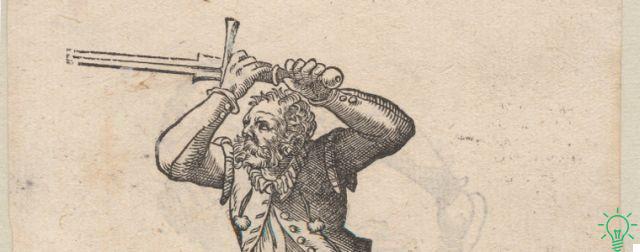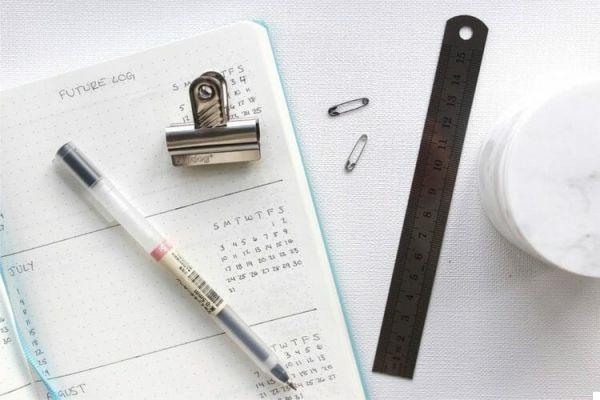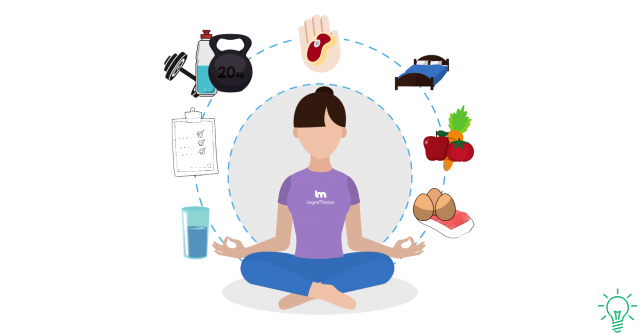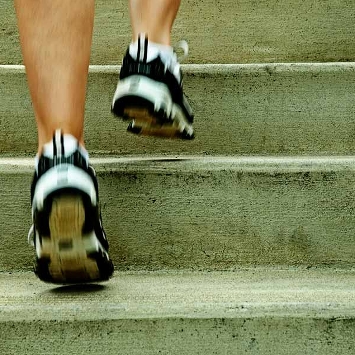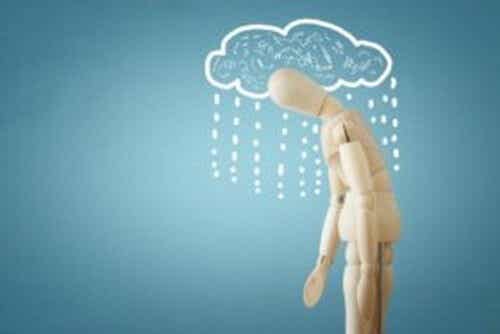Because you can't stick to your good intentions

Have you ever decided to go on a diet, physical activity or anything else, knowing that it is right and correct to do so, but ending up doing exactly the opposite?
Have you ever wondered what it can depend on?
- Maybe it's the fault of the temptations. You force yourself to repeat the lesson of that English course you are taking, but the idea of watching an episode of your favorite series on Netflix is much more tempting. “I'm only jumping today, I swear! From tomorrow I start studying seriously… ”you say to yourself, while turning on the TV.
- Or maybe it's your fault non-compliance with the rules and for prescriptions. The doctor has invited you to do more exercise, but you just can't do it and you keep putting it off.
Too many series on Netflix, going out with friends, the sofa instead of workouts: everything seems to get the better of yours good intentions and establishing useful habits becomes impossible for you.
Disoriented and confused you convince yourself that maybe you have no real goals, or that they are not actually desired, or worse still that there are. something in you that's not working: you feel you have no character, no personality.
But is not so.
Your goals are correct and you have nothing wrong ... except that you give in when you should resist, thus contributing to weaken your willpower which, as it gets weaker and weaker, forces you to give in even more.
But why does this happen?
The devaluation of the future

Imagine you are sitting in a restaurant: for your health (you have put on several kilos recently) you have decided to do without dessert, so when the waiter arrives you manage not to order it.
But when you're about to ask for a coffee, pass the cart with sweets and suddenly change your mind.
"A portion of profiteroles, thank you ... Ah, sorry, even that piece of tiramisu left alone".
... and succumb to temptation, without shame.
Eat and enjoy, and then cry.
When the biochemical gratification is long gone and your stomach feels swollen like a bagpipe, you regret it. And as you calculate the calories with your new app, you tell yourself that this was the last time, that it's time to change your life (from tomorrow though).
But meanwhile you are there, sunk on the sofa, and you wonder what happened, Why did the candy cart override the dangers to your health?
The answer is simple.
The candy cart is here in the present, while the risks to your health are there, far away, in the future.
You repeat to yourself that ...
“It doesn't necessarily mean that something with a few extra pounds has to happen to me”.
The risks are very far away, as you can see, impalpable, difficult to see with the naked eye, and besides they don't have the luminous charm of those. balls covered with chocolate that from the trolley of sweets enchant you like the sirens of Ulysses.
What happened in your mind, in front of the dessert cart, is called devaluation of the future.
Devaluing the future it means that the positive effects, which are however distant in time (reaching old age in good health), only partially enter into the present decisions.
Yet the devaluation, or denial, of the future is only the first part of the problem ...
Hypotrophic and hypertrophic will

If you go to the gym and train seriously your muscles become hypertrophied, swell giving you more strength, but if you don't go, they become hypotrophic over time, and even getting out of a chair becomes a problem.
The same happens to ours will, which like a mental muscle she is sensitive to training: she becomes hypertrophic if you train her, hypotrophic if you don't make her work.
A simple example.
You say to yourself: “Tomorrow I'm going to run”, but the next day, you avoid and postpone, resorting to more or less refined self-deceptions (too much wind, too hot, too many people…). And the next day you postpone again, and then again, accumulating weeks and months of apathy and reluctance, until you give up altogether.
Your legs lose tone and the pounds pile up, but it's not the only damage, it's only the most noticeable.
The most important, and most dangerous, damage is what happens in yours inner world, every time you give in and send back.
Your will weakens, as your legs become hypotrophic, and yours esteem is affected by it, sending you back aimage of you disheartening that knocks you down and depresses you.
But that's not all, yours too tolerance threshold it weakens, pushing you to give in even to the smallest temptations, the ones you used to be able to resist.
The effect of this vicious circle, often, is the anxiety that assails you when, now with one hypotrophic will it's a tolerance threshold very low, you try to regain control of your life in vain.
And failure after failure you come to think about what you should never think about:
"I know I'll fail this time too, so why keep trying?"
Where to start from?
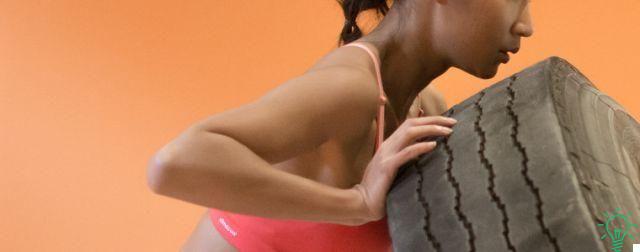
Become aware of the deceptions of our mind (eg devaluation of the future) is certainly the first step to respect our intentions and to form good habits.
But if we wish to radically change the course of our life, we must make a real "mental leap", learning to see habits as the training ground for our will.
So, going for a run in the morning, for example, will no longer be a simple way to get back into shape, but the tool to make your hypertrophic will, to raise yours tolerance threshold and to strengthen yours esteem.
This new mindset will give you, on the one hand, the benefits of the individual good habits you will form, and on the other hand, it will allow you to develop a strong will that will make you feel strong and unassailable by temptation.
… The dessert trolley, then, will be there, in front of you, small and out of focus compared to the new image that you are building of yourself, an image of a person who does not give in as a weakling to the nth temptation, but dominates his own life and circumstances with a muscle of the will that becomes bigger and more defined every day.




